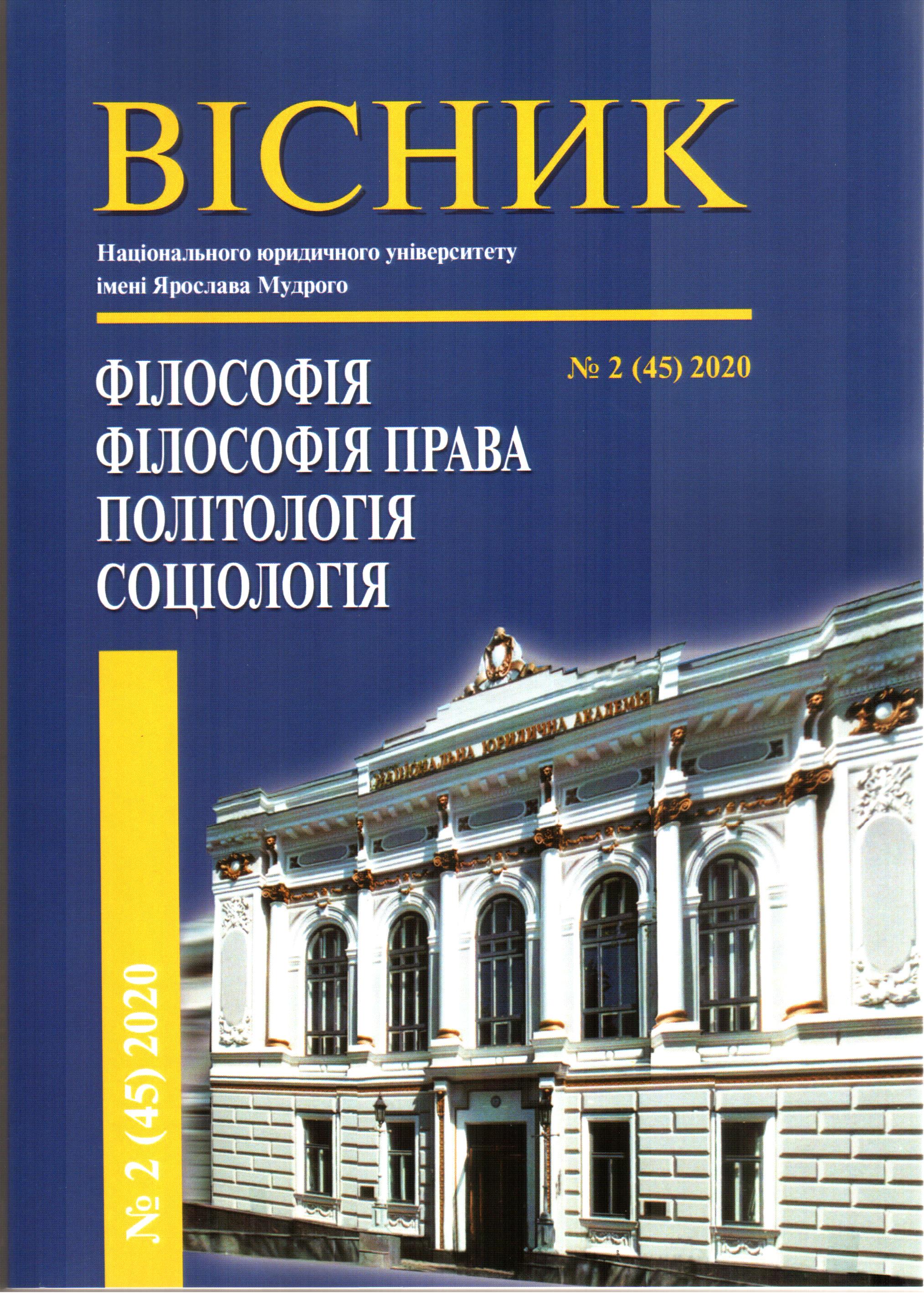РОЛЬ РЕФЕРЕНДУМІВ У ЗДІЙСНЕННІ ВЛАДИ
ROLE OF REFERENDA IN THE EXERCISE OF POWER
Author(s): Valentyna Davidyvna VodnikSubject(s): Governance, Electoral systems
Published by: Національний юридичний університет імені Ярослава Мудрого
Keywords: referendum; power of the people; democracy; legislation; constitution;
Summary/Abstract: Problem setting. Today, Ukraine is characterized by the need for fundamental changes in the activity of state bodies. The effectiveness of the realization of the rights of the people, the guarantee of the possibility of their realization in the vital reality depends on the efficiency of functioning of the referendum institution, which requires effective development at the theoretical level. The urgency of the problem is caused by the need to select the most effective, democratic means of holding referendums, to study and to apply the best practices of the democratic countries of the world in this field of activity.Recent research and publications analysis. Some questions of the referendum institute were investigated in the works of such scientists as V. Barsky, Y. Budnik, N. Vinnykova, S. Derev ’yanko, S. Zakirova, M. Ilnitskyi, L. Kryvenko, V. Markitantov, V. Nechytailo, I. Myloserdna, Y. Paleeva, O. Chebanenko, O. Hryshchuk, N. Kolodyazhna, A. Yevhenieva,S. Kravchenko, V. Kobel, R. Makukha and others. Some elements of the constitutional model of the referendum have been analyzed in the majority of works devoted to this political and legal institute. From the special researches in which attempts were made to construct such a model, one can name the works of legal scholars: M. Onishchuk, V. Pohorilka, A. Stavniychuk, V. Fedorenko and others.Paper objective. The purpose of the article is to study the nature of referendums, their constitutional boundaries, as well as the experience of organizing and carrying out this form of will of the people in democratic countries, which can be used in Ukraine.Paper main body. A referendum is one of the most prominent institutions of democracy that allows the population to directly address pressing issues of the state and society.The referendum as a political and legal institute dates back to ancient times. It was started in ancient Rome, but the date of the first referendum is considered to be 1439, and his birthplace is Switzerland, including the canton of Bern. The referendums were envisaged by the legislatures of many countries. The referendum in the XX century became quite widespread. Its implementation was provided for by a number of constitutions of European states adopted during the period between the world wars. The legal practice of foreign countries shows the possibility of harmonizing the use of direct and representative democracy. Much depends on the nature of the political regime in a particular country, the traditions, the mentality of its people, the degree of democratization and other factors that influence the formation and development of a system of direct democracy. For the practical use of the referendum as an institution for legitimizing political decisions of the state power in Ukraine, it is necessary, first of all, to regulate the legal grounds of this legal form of the will of the citizens.Conclusions of the research. The referendum as a political instrument of public administration has a long history. An important component of preparing for the successful use of a referendum in Ukraine as a tool of direct democracy is a detailed analysis of international experience and world practice. The most important step towards effective implementation of this mechanism of direct democracy is the existence of specific legislation and an advanced mechanism for the practical implementation of the decisions reached.
Journal: Вісник НЮУ імені Ярослава Мудрого. Серія: Філософія, філософія права, політологія, соціологія
- Issue Year: 45/2020
- Issue No: 2
- Page Range: 154-166
- Page Count: 13
- Language: Ukrainian

